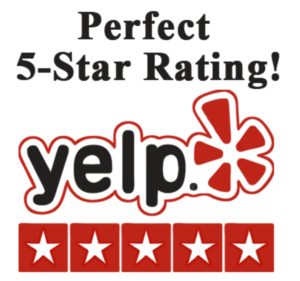Communications
Getting Help from Yelp
Does Yelp have the power to make or break a retailer? For owners of small restaurants — and local chains in particular — Yelp can be a terrifying experience. One bad meal, one surly wait person, one dirty glass becomes amplified as the dissatisfied customer vents on Yelp.
Owners of these establishments know that these comments can make or break their business. No matter how much positive feedback they receive, owners often live in fear of the next bad review.
Using reviews as feedback

Christy Augsburger
Don’t panic — take control of your Yelp. That was the advice from Yelp’s Christy Augsburger, who was among the presenters at the recent NW Food Show in Portland, OR.
Augsburger’s “5 Star State of Mind” presentation encouraged skittish restaurateurs to embrace their Yelp reviews — good and bad. She wants business owners and managers to use reviews as tools to better market their restaurants, and at the same time improve the quality of service and food.
“Embrace online feedback, don’t fight it,” is Augsburger’s mantra; one she says she loves delivering in her role as Yelp Local Business Partner.
Rising above the competition
“We live in a world where average star rating is the most important factor consumers look at when judging a local business on review sites,” she said. “How can your business rise above the competition if you don’t have a perfect five-star rating today? It takes adopting a five-star state of mind — understanding how consumers use reviews, setting goals for customer service excellence, developing a strategy for dealing with customer feedback, and organically growing reviews.”

It’s all oohs and ahhs and Instagram filters until someone writes a bad Yelp review of the food in the photo.
Augsburger advises restaurant owners and managers to carve out time each day to read reviews and respond to them — good ones as well as the bombshells. By devoting as little as 10 minutes a day to review responses, a restaurateur can begin to engage the dining community in a dialogue that will both promote the business via word of mouth and social media, and lead to improvements among kitchen and wait staff.
“Your customers are already talking about your business online and shaping your reputation, whether you’re listening or not. It’s time to actively join the conversation, gain consumer trust, and stand out,” she said.
Taking control of Yelp
While negative reviews can be painful to read, Yelp’s research shows that more than 80 percent of reviews are positive. The notion that “only people who had a bad experience use Yelp” is completely wrong, she said, driven by the fears harbored by owners and managers. In any case, with three-quarters of consumers now using review sites to make buying decisions, it simply doesn’t make business sense to ignore reviews.
Augsburger offered four steps restaurateurs can take to begin to take control of their online review world:
- Understand that haters are not the problem; ignoring them is the problem. “Businesses experience a 16% boost in customer advocacy from answered complaints on review sites. Meanwhile, ignored complaints on review sites experience a 37% decline in customer advocacy.” So respond to the negative reviews. (But don’t get in an argument!)

- Treat every customer like a VIP, even after they leave your business. Be nice to the negative reviewers, ask what you could have done better, then move on to thanking the positive ones. With 8 of 10 reviews generally falling above 3 stars, you want to make sure the people who like you love you and those who love you rave about you online. Always take the high road, and realize that you can respond on Yelp with a private message. The whole online world doesn’t have to see your response.
- Don’t ask for reviews. Leave a trail of breadcrumbs. Reviewers are already motivated to write something about you — begging them to do so dilutes the experience and diminishes you in their eyes. Instead, let folks know you value reviews by discreetly displaying online logos and being proactive on online review sites. Organic reviews are the most highly valued.
- Amplify the positivity. You can’t control what folks say on Yelp (except by upgrading your entire business). But you can use the best from Yelp and share it elsewhere. Positive Yelp and other online reviews make for great website, Twitter, Facebook and LinkedIn testimonials, for instance. Be selective, but don’t underestimate the power of sharing the good news about your establishment.
Responding to Yelp is one aspect of a social media strategy that you may be neglecting. Contact us to review your current efforts and get recommendations on how to improve your interactions and communications with your audience.